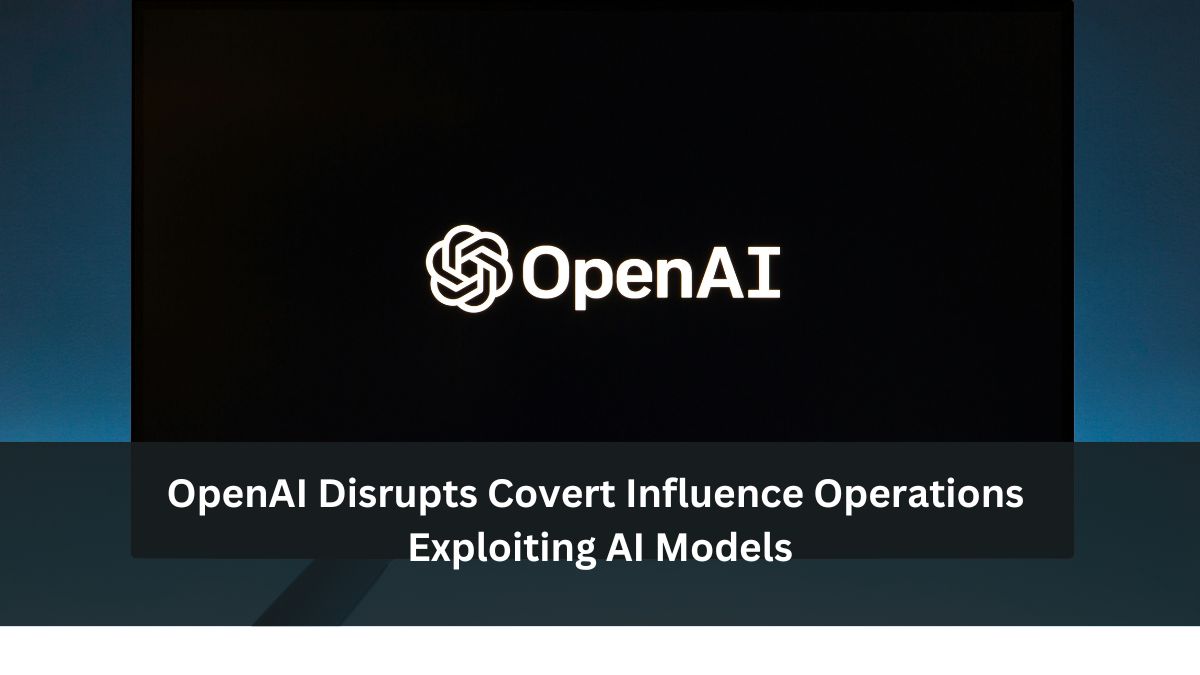AI
OpenAI Disrupts Covert Influence Operations Exploiting AI Models

A Proactive Stance Against Malicious Activities
In a significant move to combat the misuse of its powerful artificial intelligence (AI) models, OpenAI has revealed that it successfully disrupted five covert influence operations originating from Russia, China, Iran, and Israel. These operations, which spanned from 2023 to 2024, aimed to manipulate public opinion and influence political outcomes by leveraging OpenAI’s AI models in deceptive ways, concealing their true identities and intentions.
OpenAI’s decisive action underscores the company’s commitment to safeguarding the integrity of its AI technologies and preventing their exploitation for malicious purposes. In a report detailing the operations, OpenAI emphasized that these campaigns did not manage to significantly increase their audience engagement or reach through the misuse of its services.
A Collaborative Effort to Curb AI Abuse
OpenAI’s success in disrupting these covert influence operations was not achieved in isolation. The company acknowledged the collaborative efforts of individuals and organizations across the tech industry, civil society, and governments, highlighting the importance of collective action in addressing such complex challenges.
As concerns mount over the potential impact of generative AI on upcoming elections worldwide, including the United States, OpenAI’s findings shed light on the evolving tactics employed by bad actors to spread disinformation and sway public opinion.
Exploiting AI for Deception and Manipulation
The report revealed how networks of individuals engaged in influence operations have leveraged generative AI to generate text and images at unprecedented volumes, as well as to create fake engagement by generating artificial comments on social media posts.
“Over the last year and a half, there have been a lot of questions around what might happen if influence operations use generative AI,” said Ben Nimmo, principal investigator on OpenAI’s Intelligence and Investigations team, during a press briefing reported by Bloomberg. “With this report, we really want to start filling in some of the blanks.”
Dissecting the Covert Campaigns
Among the operations disclosed by OpenAI, the Russian “Doppelganger” campaign utilized the company’s models to generate headlines, convert news articles into Facebook posts, and create comments in multiple languages, all with the aim of undermining support for Ukraine.
Another Russian group employed OpenAI’s models to debug code for a Telegram bot that posted short political comments in English and Russian, targeting Ukraine, Moldova, the United States, and Baltic States.
The Chinese network “Spamouflage,” known for its influence efforts across Facebook and Instagram, utilized OpenAI’s models to research social media activity and generate text-based content in multiple languages across various platforms.
Additionally, the Iranian “International Union of Virtual Media” also exploited AI to generate content in multiple languages, further illustrating the global scale of these covert operations.
A Broader Trend of Transparency
OpenAI’s disclosure aligns with a broader trend of tech companies sharing information about coordinated inauthentic behavior on their platforms. Just a day before OpenAI’s report, Meta released its latest findings, detailing how an Israeli marketing firm had utilized fake Facebook accounts to run an influence campaign targeting people in the United States and Canada.
These revelations underscore the urgency of addressing the misuse of AI technologies and the need for robust safeguards to protect the integrity of public discourse and democratic processes.
A Personal Perspective
As an avid observer of the rapidly evolving AI landscape, I cannot help but be both impressed and concerned by the findings presented by OpenAI. The sophistication with which these covert operations attempted to exploit AI models for their nefarious purposes is a sobering reminder of the challenges we face in this new era of technological advancement.
While the potential benefits of generative AI are vast and exciting, it is clear that we must remain vigilant and proactive in addressing the potential risks and misuses. As individuals and as a society, we must engage in a continuous dialogue about the ethical implications of these technologies and work collaboratively to develop robust governance frameworks that balance innovation with responsible use.
A Call for Responsible AI Development and Deployment
OpenAI’s report serves as a wake-up call for the tech industry, policymakers, and the public at large. It highlights the urgency of fostering a culture of responsible AI development and deployment, where ethical considerations are deeply embedded in the design and implementation processes.
As we navigate the uncharted waters of this technological revolution, it is imperative that we prioritize transparency, accountability, and collaboration across all sectors. Only through a concerted effort can we effectively mitigate the risks associated with the misuse of AI and ensure that these powerful technologies are harnessed for the betterment of humanity, rather than exploited for malicious purposes.
Safeguarding the Future of AI
OpenAI’s disruption of covert influence operations is a remarkable achievement, but it is merely the beginning of a much larger endeavor. As AI technologies continue to advance at an unprecedented pace, we must remain vigilant and proactive in addressing the associated challenges.
The findings presented by OpenAI serve as a stark reminder that bad actors will continually seek to exploit emerging technologies for their own gain, often at the expense of truth, democracy, and the well-being of society.
It is our collective responsibility to ensure that the development and deployment of AI technologies are guided by a strong ethical framework, one that prioritizes transparency, accountability, and the protection of fundamental human rights and democratic principles.
By fostering a culture of responsible AI development and deployment, we can harness the immense potential of these technologies while mitigating the risks and safeguarding the integrity of our public discourse and democratic processes.
The path forward will undoubtedly be complex and challenging, but it is a journey we must undertake with unwavering commitment and collective resolve. For it is only through our concerted efforts that we can truly safeguard the future of AI and ensure that it remains a force for good, rather than a tool for deception and manipulation.
